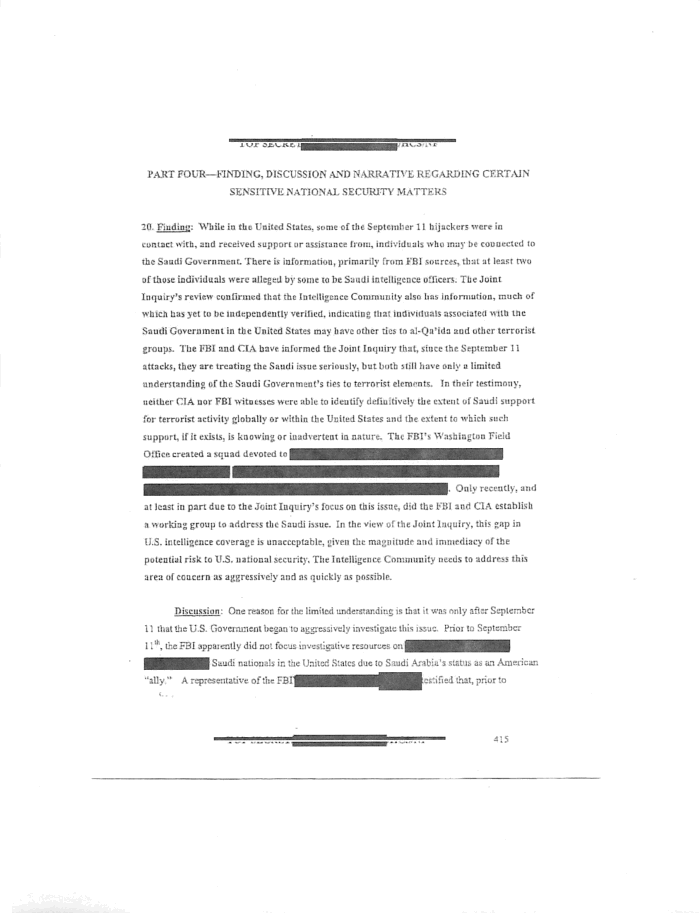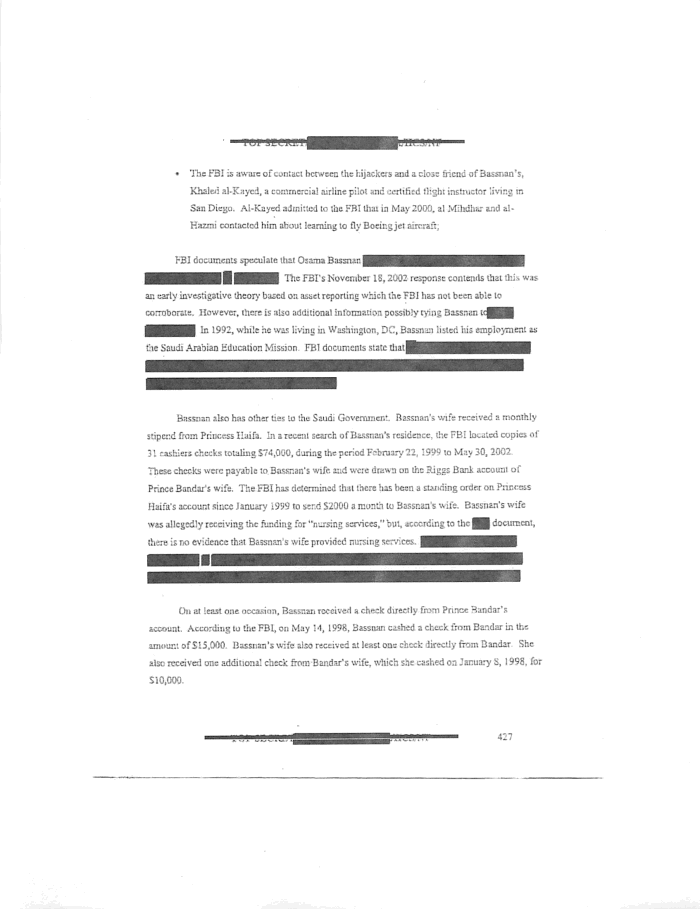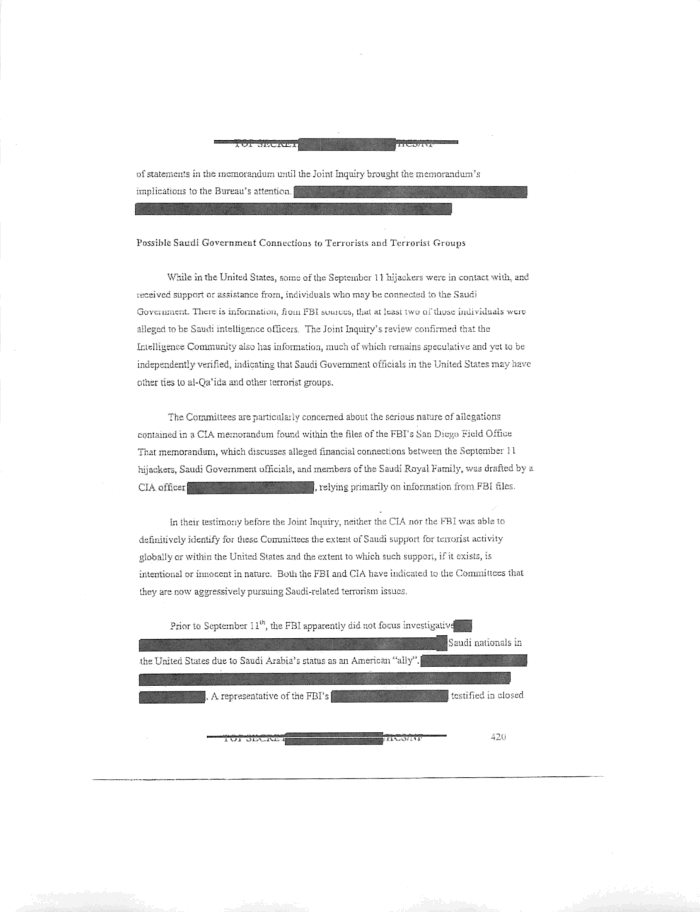The Missing 28 Pages
The formerly classified pages of the congressional inquiry into the 9/11 attacks say some of the hijackers “were in contact with, and received support or assistance from, individuals who may be connected in the Saudi Government.”
Some 9/11 hijackers had links to officials in the Saudi government, according to 28 formerly classified pages released Friday from the joint congressional investigation into the attack.
In 2002 a joint congressional investigation looked into possible intelligence failures that led to the attacks, but these 28 pages were kept classified, leading to speculation that they possessed details about Saudi links to the hijackers.
U.S. lawmakers had wanted to release the documents, but the FBI wanted the pages to remain classified—and indeed many details in the pages are redacted. As our colleague David Graham reported, former Senator Bob Graham of Florida, who chaired the Senate side of the congressional investigation, has tried to get the pages released for years. He has said there is no security reason for the U.S. government to keep them secret. And while he hasn’t been able to discuss what is in the pages because they were classified, he had promised “a real smoking gun.”
The pages that were released Friday appear to fall short of that promise—though they do raise questions about senior Saudi officials and their connections, sometimes tenuous, to some of the hijackers. The pages allege that while some of the hijackers were in the U.S., they were in contact with, and at times received assistance from, people in the Saudi government, including two Saudi intelligence officers. Officials in the Saudi government, including members of the royal family and embassy staff, at times provided large sums of money, fake passports, and information to people assisting the hijackers while they were in the U.S., the pages allege.
Here’s an example:
Bandar, a close family friend of the Bushes, was Saudi ambassador to U.S. from 1983 to 2005.
The pages also criticize the intelligence shortfalls on the Saudi issue, saying:
In the view of the Joint Inquiry, this gap in U.S. intelligence coverage is unacceptable, given the magnitude and immediacy of the potential risk to U.S. national security.
Here’s more:
One reason for this, the report explains, may relate to Saudi Arabia’s status as a U.S. ally. Indeed, Josh Earnest, the White House spokesman, said Friday the Obama administration does not think the release of the 28 pages “change conclusions about the 9/11 attacks.”
In a statement, the Saudi Embassy in Washington, said:
The Kingdom of Saudi Arabia welcomes the release of the redacted pages from the 2002 Congressional Joint Inquiry. Since 2002, the 9/11 Commission and several government agencies, including the CIA and the FBI, have investigated the contents of the ‘28 Pages’ and have confirmed that neither the Saudi government, nor senior Saudi officials, nor any person acting on behalf of the Saudi government provided any support or encouragement for these attacks.
But the 9/11 Families in response said: “The Saudis are exerting extreme pressure on the Administration to protect themselves and to cajole Congress in hopes of avoiding the restoration of the long-held understanding of our law and setting good policy. And this very exercise of unacceptable leverage by the Saudis over our Government is precisely what the Foreign Sovereign Immunities Act was meant to prevent.”
The 9/11 Families also called for Congress to pass the Justice Against Sponsor of Terrorism Act, which would allow families of terrorist victims to sue foreign governments for damages in U.S. courts. The Saudis are opposed to the legislation and the White House has said the president will veto any attempt to pass it.









